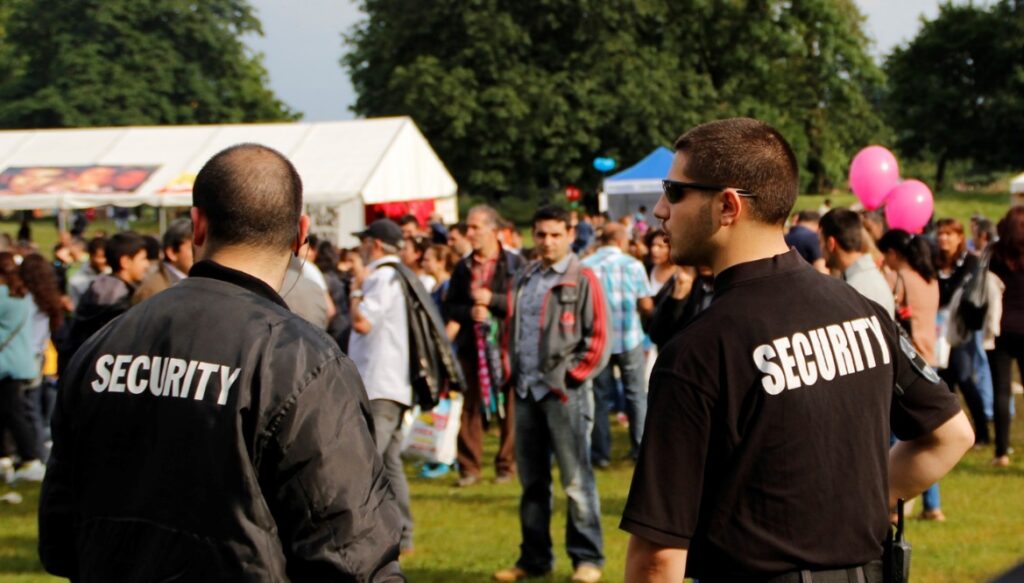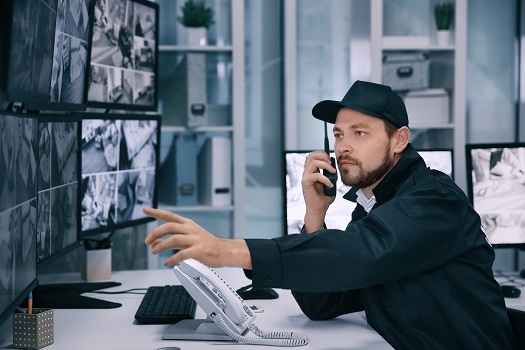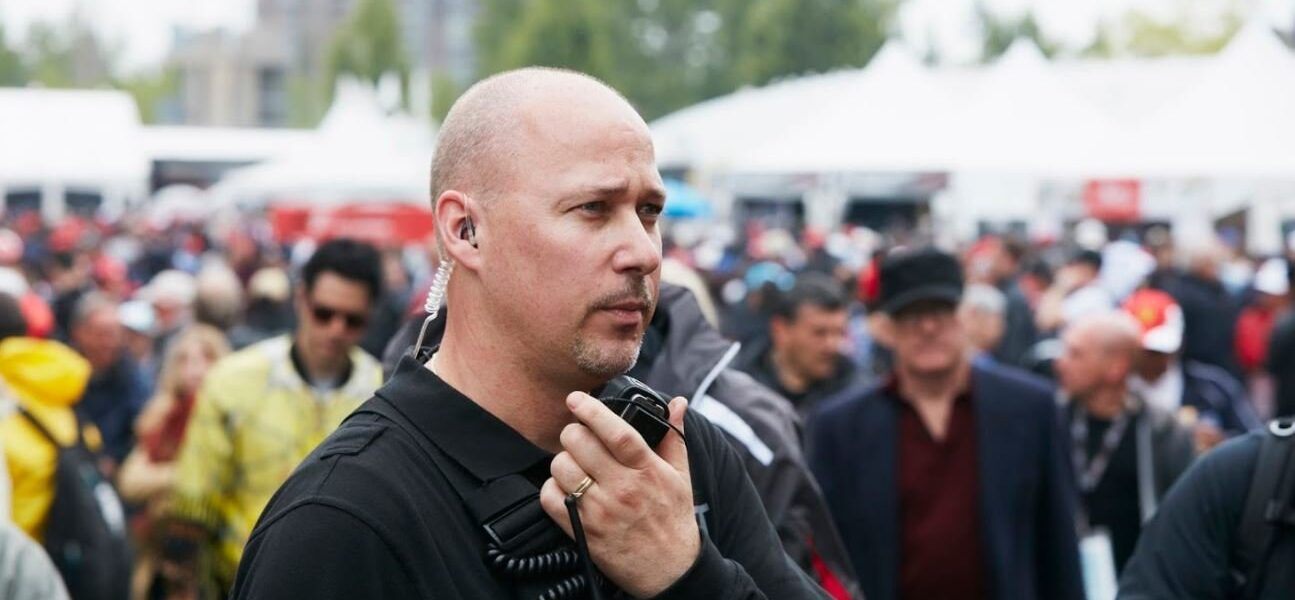In today’s dynamic business world, corporate events are more than just gatherings; they are opportunities for networking, education, and collaboration. To ensure a successful corporate event, it’s crucial to prioritize security and safety. This article delves into the intricate world of corporate event security, offering expert guidance to make your event not only secure but also a memorable success.
Table of Contents
- The Importance of Corporate Event Security
- Planning for Corporate Event Security
- Access Control
- Surveillance and Monitoring
- FAQs
- How can I choose the right security team for my corporate event?
- What should I include in my event’s evacuation plan?
- How can I balance event security without making attendees feel uncomfortable?
- What role does technology play in corporate event security?
- Can I save on security costs by hiring an inexperienced team?
- What measures can I take to ensure the security of sensitive data shared at the event?
- Conclusion
The Importance of Corporate Event Security
Ensuring the safety of all attendees is the cornerstone of hosting a corporate event. Here’s why corporate event security matters:
A Secure Environment for Networking
Creating a secure environment for networking at corporate events means implementing measures such as access control, identity verification, and encryption of sensitive data. This not only prevents unauthorized access but also assures attendees that their personal and professional information is safe. Additionally, providing a comfortable and secure networking environment can encourage attendees to engage more freely, leading to more productive interactions and the potential for fruitful partnerships.
Compliance with Legal Requirements
Compliance with legal requirements for security demonstrates an organization’s commitment to safety and regulatory compliance. This adherence can involve adhering to specific event security laws, obtaining permits, and engaging with law enforcement or security consultants to ensure the event meets the necessary standards. Beyond the legal aspects, it sends a strong message that the organization takes its responsibility for ensuring a secure environment seriously, which can enhance its credibility and build trust among stakeholders.
Protecting Sensitive Information
To protect sensitive information at corporate events, organizations must go beyond physical security measures and consider digital safeguards. Employing data encryption, secure Wi-Fi networks, and stringent data handling procedures are paramount. Furthermore, having a clear data protection policy and educating attendees on the importance of data security can help ensure that confidential information remains confidential, instilling a sense of trust and confidence among participants.
Reputation and Brand Image
A well-executed and secure corporate event not only boosts an organization’s reputation but also strengthens its brand image. When attendees perceive an event as safe and professionally managed, they are more likely to associate these positive attributes with the hosting company. This association can have a lasting impact, enhancing customer loyalty and attracting potential business partners or clients who value security and professionalism in their dealings.

Planning for Corporate Event Security
Pre-event Risk Assessment
Before the corporate event, it is crucial to conduct a comprehensive risk assessment. This involves a detailed examination of the event venue, its surroundings, and the nature of the event itself. Identifying potential threats and vulnerabilities, such as access points, crowd control issues, and sensitive areas, is essential for effective security planning. The assessment should also consider factors like the number of attendees, the presence of VIPs, and the event’s significance, as these can influence the level of security required.
Security Team Selection
Selecting the right security team is paramount to ensure the safety of all participants. It’s essential to hire professionals with specific expertise in corporate event security. Look for security personnel who have experience in managing similar events, understand the unique challenges they pose, and are well-versed in crowd management, access control, and emergency response procedures. Additionally, the team should be equipped to handle various scenarios, including medical emergencies, disturbances, or security breaches, with a high level of competence. Effective communication and coordination among team members are also vital for seamless security operations during the event.
Access Control
Credential Verification
Access control at events is critical for maintaining security and order. One of the key aspects of this is credential verification. This process involves checking the identity and authorization of attendees before granting them access to the event. By verifying attendees’ credentials, event organizers can confirm that only authorized individuals are admitted, reducing the risk of unauthorized access or potential security threats. This can be done through methods like scanning tickets, checking IDs, or using biometric verification systems to ensure the right people enter the event.
Entry and Exit Points
Another crucial component of access control is the management of entry and exit points. By maintaining control over these access points, event organizers can ensure that attendees use designated entrances and exits. This controlled flow of people helps prevent congestion, reduces the risk of accidents, and allows for efficient monitoring of who enters and leaves the event. Moreover, having a single, monitored entrance simplifies security measures, making it easier to keep track of the attendees and respond to any incidents swiftly.
Surveillance and Monitoring
CCTV Cameras
Installing CCTV cameras in strategic locations offers several benefits. These cameras provide real-time monitoring, which allows security personnel to swiftly respond to any suspicious activities or incidents, enhancing overall safety. Additionally, recorded footage can serve as valuable evidence in case of any security breaches or disputes.
Security Personnel
The presence of security personnel is a critical aspect of effective surveillance and monitoring. Their visible presence acts as a deterrent to potential wrongdoers, reducing the likelihood of security incidents. These professionals are trained to quickly assess and respond to security threats, ensuring a rapid and efficient response to any emergencies that may arise at the venue.

FAQs
How can I choose the right security team for my corporate event?
Look for experienced teams with a strong track record in corporate event security. Check references and consider their familiarity with your specific event type.
What should I include in my event’s evacuation plan?
An evacuation plan should include exit routes, designated assembly points, and clear instructions for attendees to follow in case of an emergency.
How can I balance event security without making attendees feel uncomfortable?
Properly trained security personnel can maintain a discreet but reassuring presence, striking a balance between security and attendee comfort.
What role does technology play in corporate event security?
Technology, such as CCTV cameras and access control systems, enhances security by providing real-time monitoring and data collection.
Can I save on security costs by hiring an inexperienced team?
Cutting costs on security can jeopardize the safety of your event and damage your reputation. Invest in a professional, experienced security team.
What measures can I take to ensure the security of sensitive data shared at the event?
Encrypt data, restrict access and consider secure communication channels to protect sensitive information.
Conclusion
In conclusion, ensuring the security of your corporate event is not just a regulatory obligation; it’s a fundamental aspect of hosting a successful gathering. By prioritizing safety, you create an environment where attendees can focus on the event’s purpose, networking, and knowledge sharing. Remember, a secure event is a successful event.
















